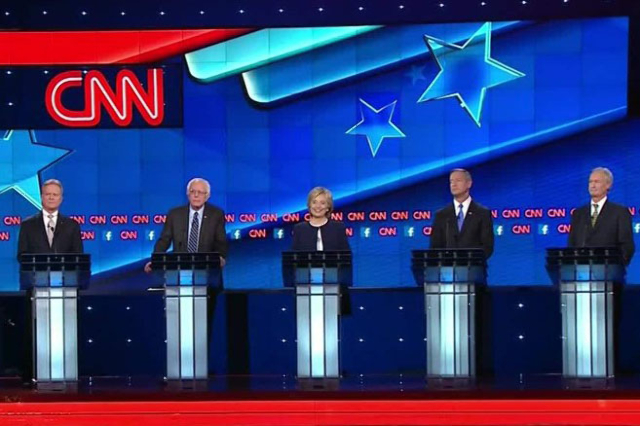Veterans issues loom large in 2016 elections

They vote for Republicans and Democrats.
They come from all ethnic backgrounds and income levels.
Veterans make up a large constituency group in the Silver State — an estimated 300,000. Some 227,000 of them are registered to receive veterans benefits, the majority in Southern Nevada.
These veterans come to Nevada for a range of reasons. The warm climate of Las Vegas, proximity of Nellis and Creech Air Force bases and relatively low cost of living for retirees are all factors.
The political support they draw has been bipartisan. Politicians of both major parties speak of the need to support veterans and care for them.
It’s too soon to say which presidential contender will win over Nevada’s veterans, who, like other voters, say they are still scrutinizing candidates.
But there are plenty of reasons for veterans issues to be at the forefront in the 2016 election year.
The Department of Veterans Affairs has been rocked with scandals in recent years, including falsifying records to hide long wait times for veterans seeking appointments for medical care. The Reno regional office that processes claims for veterans benefits has drawn fire for its backlogs in processing benefit claims filed by veterans in Nevada and part of California. The head of the Reno office left the position amid concerns about this poor performance.
Veterans: Changes needed
Generational change is ahead, as the needs of younger veterans grow. By the time voters cast ballots in November 2016, 15 years will have passed since the younger veterans started fighting the war on terror.
“I think a new president better get ahold of the veterans administration and straighten it out,” said John L. Scaduto, 72, a Marine Corps veteran who served in Vietnam.
Scaduto, also president of the Vietnam Veterans of America Chapter 1076 in Henderson, said the system that provides benefits to veterans needs to be quickly fixed.
“I would like to see them actually take hold of the situation and get it fixed,” he said. “It’s working faster, but it’s not getting faster. The World War II veterans, they’re almost gone, God bless them. Korean War veterans are in their eighties. We’re (Vietnam veterans) in our late sixties and early seventies. It’s like: ‘How much more time have we got?'”
Stephen Gibbs, 64, an Army veteran who served in Vietnam, said the VA secretary needs the power to hire and fire staffers. He said veterans aren’t the type to sit home on Election Day.
“They better watch out because the veterans are going to vote,” Gibbs said of candidates. “… They’re going to get some hard questions.”
The Vietnam generation got the U.S. to separate the war from the veteran, Gibbs said. He added that he has concerns about the younger generation of veterans who will have needs in the years ahead.
George Haussmann, 66, an Air Force veteran who is president of Vietnam Veterans of America Chapter 17 in Las Vegas, said veterans issues will continue to be important, including such things as treatment for those exposed to toxic chemicals while serving.
“Other people are more involved in immigration or this or that issue, but I think veterans still have a big say in what’s going on in the country,” he said.
Bipartisan issue
Veterans issues are getting more attention from presidential candidates, said Dan Caldwell, legislative and political director of Concerned Veterans for America. The advocacy group doesn’t endorse candidates but has organized nonpartisan town halls that give elected officials and candidates a chance to talk about issues.
The discussion has shifted. In 2008, for example, veterans issues came up in the context of the war in Iraq and national security, Caldwell said. Now, with the constant attention to problems within Veterans Affairs itself, the issue is “front and center,” he said.
Nevada is an early voting state, with February caucuses that will play a key role in determining who gets the Republican and Democratic nominations for president.
It’s also a hot topic among Nevadans from both parties who are already serving in Congress. For example, Sen. Dean Heller, R-Nev., who isn’t up for re-election next year, and Rep. Dina Titus, D-Nev., who is seeking re-election, have both raised concerns about the lackluster performance of the VA’s Reno benefits office, which played a role in the ouster of its administrator.
“I would say the veterans groups tend to be the least likely to actively campaign,” said Fred Lokken, a political science professor at Truckee Meadows Community College in Reno. “Their strength is in voting and they do it.”
Contact Ben Botkin at bbotkin@reviewjournal.com or 702-387-2904. Find him on Twitter: @BenBotkin1